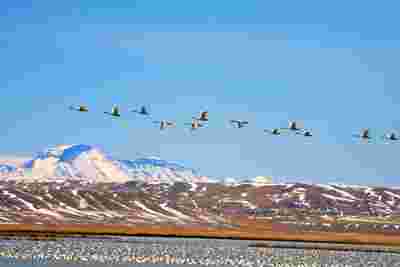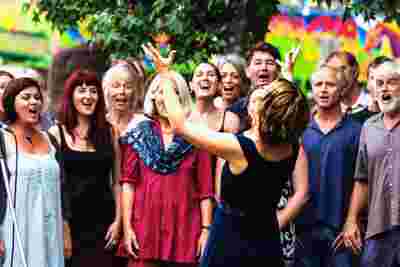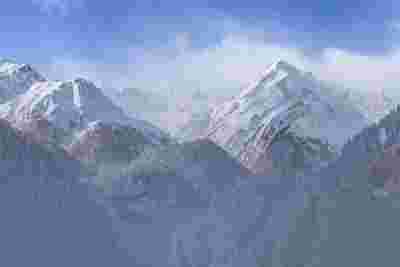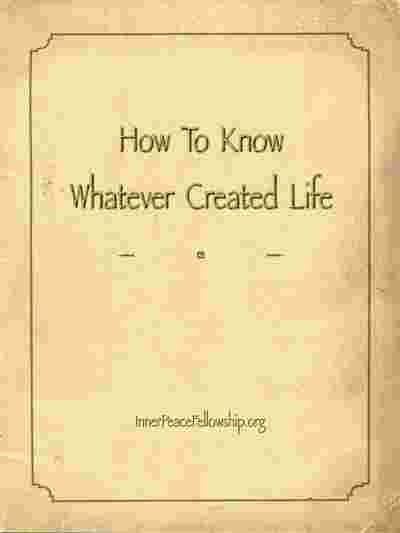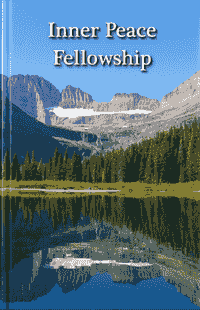Why Be Good
We are here today because our ancestors learned that survival depended on every person doing the right thing and having each other’s back. Today our survival still depends on that, as do our inner peace and sense of well-being.
“Our actions change our reality. Our intentions matter. Most people believe that their actions have consequences but don’t think through the implications of that belief. But Steve [Jobs, owner of Pixar] did. He believed, as I do, that it is precisely by acting on our intentions and staying true to our values that we change the world.”
Pixar Animation Studios
How Humans Came to Dominate Earth
The extinction of dinosaurs 65 million years ago left niches on Earth in which the ancestors of humans could flourish. Yet from the time the dinosaurs were wiped out it took 64.8 million more years before humans (Homo sapiens) first appeared on Earth about 200,000 years ago.
About 99% of the 3 billion species that ever lived on Earth are now extinct*, mainly because they did not adapt to changing conditions. You are here today because your ancestors in every one of the past 10,000 generations figured out how to survive against such very long odds. They survived because each generation figured out how to adapt to the changing conditions in which they found themselves. Now it’s our turn to figure out how to adapt to the changing conditions in which we find ourselves, thus insuring the survival of coming generations.
In The Social Conquest of Earth, Edward O. Wilson describes how human domination of Earth today resulted from a series of adaptations by our earliest ancestors. Those ancient adaptations became deeply ingrained instincts in us that today determine many of our automatic responses and behaviors. Many of those instincts still serve to keep us alive, but some instincts from those caveman days now threaten our survival. But we’re getting ahead of our story. Let’s start from the beginning.
Of the many adaptations that got us here, we owe our appearance on Earth largely to having learned to control fire and to our highly unusual instinct to build and defend an established nest.
Learning to Control Fire
Our earliest ancestors numbered a few tens of thousands at most and lived in small bands of several dozen each. At first humans ate vegetation, which has low energy per weight. Meat has more energy per weight than vegetation and thus is a more efficient way to obtain the protein that is vital to survival. Eventually our ancestors figured out that when they ate meat they spent less time and energy finding food. At first they killed animals and ate their flesh raw, but they found that the meat of animals killed in and cooked by wildfires was easier to digest, and thus its protein could be utilized more easily.
At first they intentionally set wild fires to kill and cook animals but that was inefficient. So they learned to control fire and to hunt. On vast, expansive grasslands hunters on foot would run animals down and kill them. They would station themselves at different locations and trade off running after an animal until it was totally exhausted.** Then they would return to their campsite where a fire was always burning, and cook and eat their kill.
Thus through learning to control the use of fire, humans insured themselves a steady diet of vital, dense, meat protein. That high energy diet then caused the human brain to increase in size from 400 – 500 cubic centimeters to 1,500 – 1,700 cubic centimeters today. It was this tripling of brain size that provided the memory capacity that was essential for developing what were to become our breakout skills as a species – abstract thinking and language. (To learn more about how abstract thinking and language developed, and how those limit our freedom today, see The Rise of Abstract Thinking.)
Building And Defending An Established Nest
Most creatures on Earth build nests. Yet once a nest has served its purpose most creatures abandon their nest and build a new one when needed. Humans are one of only seven creatures on Earth that build permanent nests and defend them, which is called eusociality.*** Our eusocial behavior was the primary reason humans came to dominate Earth.
Learning to control the use of fire at campsites (our “nest”) so that meat could be cooked greatly amplified behaviors that today defined what it means to be human – the division and specialization of labor, trust and cooperation.
Wilson describes this: “The advantages of cooperation in the harvesting of meat led to the formation of highly organized groups. These consisted of extended families and allied tribes, so the population could be as large as could be sustained by the local environment. This became an advantage when resources became limited and the need to fight other tribes [to the death] for resources was needed.”
“The cohesion forced by the concentration of groups to protected [camp] sites was more than just a step through the evolutionary maze. It was … the event that launched the final drive to modern Homo sapiens.”
Our ancestors build campsites around fires and defended those. Some group members would leave the campsite to forage and hunt while others would stay behind to defend the camp and keep the children safe. In that division of labor, mutual trust and cooperation were vital. Survival was extremely difficult and each person HAD to fulfill their designated role and responsibilities because failure to do so threatened the survival of everyone in the group. And when food became scarce, which it often did, the group had to battle neighboring groups for available food, often to the death, which demanded great cooperation and trust among everyone in the group. ****
Thus group members had to behave in ways that were acceptable to everyone because if they didn’t, it weakened the bonds that held the group together. Survival was based, literally, on doing unto others as you would have them do unto you.
Certainly group members competed with one another for status, for shares of food, for access to an available mate, and for a comfortable sleeping place. These pressures conferred an advantage on those who were able to read the intentions of others. The ability to gain trust, to form alliances, and to manage rivals had value. Thus human social intelligence grew and became central to life.
Despite the emergence of human social intelligence however, Wilson says there is an iron rule in genetic social evolution: within a group, selfish members beat altruists (unselfish members) but groups of altruists beat groups with selfish members. So, while selfish activities provide competitive advantage within a group, they also are destructive to the group as a whole. That is why today each of us experiences an ongoing tension between our selfish wants and desires and pleasing others in our group(s). That tension often feels uncomfortable, yet our creativity arises through finding the balance in that tension between selfishness and pleasing others.
Wilson says of this tension, “Or risking oversimplification, individual selection promoted sin, while group selection promoted virtue. Humans are suspended in unstable and constantly changing positions between [those] two extreme forces that created us … [and that tension] might be the only way in the entire Universe that human-level intelligence and social organization can evolve. We will find a way eventually to live with our inborn turmoil, and perhaps find pleasure in viewing it as the primary source of our creativity.”
Selfishness pays off; we see that everywhere. But, mutual trust, cooperation and selflessness determine which group wins. So, if you want your family, your friends and their children to survive, your best bet appears to be to belong to group(s) with individuals who truly trust and cooperate with one another rather than group(s) of selfish individuals who look out mainly for themselves.
What Has Value
You are here today because cooperation was highly valued by your ancestors. Their survival depended on it. Thus cooperation became a deeply ingrained instinct in humans, one that is waiting to guide you as you look for the people and groups in life that you can trust. But, you will not find those people unless those people see that they can trust you also.
How do people determine if they can trust you? They look at whether you share their values. They look at whether you are truly living their values and not just talking about them. They look at whether you are truly living your life with integrity, goodness, humility, honesty, fairness, loyalty, honor, kindness, patience and courage.
So, how do you build those values in yourself? How do you figure out if others share your values? Those questions and others are discussed below.
Circumstances may be forcing you to rely on people and groups today that you do not trust. However, when people are free to choose whom to trust, they usually make that choice based on shared values. You encounter a new person or group that might become important in your life and you immediately start to wonder, “Are they committed to doing the right thing? Will they back me when the going gets tough? Do they value what I value?” Just remember: they are probably asking those same questions about you.
How To Build Good Values
You build good values in yourself by continually acting on your intention to do the right thing. Through continually acting on your intention to do the right thing, doing the right thing becomes a habit that arises more spontaneously when you need it.
So why do the right thing when so many people don’t?
- because you know instinctively that doing the right thing will benefit you because it will result in others trusting you, cooperating with you and supporting you in getting what you need in life;
- because you know instinctively that by doing the right thing you become the person you were meant to be – the best person you can be, who you are then proud of;
- because doing the right thing appears to be the only way humans will continue to survive on Earth.
Learning To Do The Right Thing
What is the right thing to do? How do you learn to recognize it, and then act on it? Life is usually happening too fast to stop and recall the information you have gathered. Instead you must learn to “feel your way” for the right thing to do. Feeling your way for the right thing to do is about finding the right balance of instincts, intentions and values that results in everyone involved being closer to their goals.
Finding that balance feels like standing on a balance board – one of those planks of wood that is resting on top of a cylinder in the middle. You place a foot on each end of the plank and try to balance yourself as the cylinder rolls beneath you. You sense your instincts, you sense your intentions and you sense what you value; and then you start to sense some balance of those where everyone involved is getting closer to their goals. Often that balance is found through shifting or redefining everyone’s goals, but that balance is never achieved through abandoning or relaxing your intention to stay true to what you value, or by not doing the right thing by everyone involved.
In situation after situation you practice finding that balance, and eventually doing the right thing becomes a habit that arises spontaneously in you. You will certainly fall off the plank, unexpectedly and often, and sometimes with a crash. Everyone does. When you do, remember that your creativity arises from those mistakes. So forgive yourself, figure out why you lost your balance, resolve to do better next time, and then get back on the plank. Do not worry endlessly about your falls and crashes; they are in the past and worrying about them can cripple you as you attempt to move forward in life. Just learn from your mistakes and move on.
A good rule of thumb for finding your balance here at every point in life is simply to do unto others as you would have them do unto you.
Good Values Are Earned and Quiet
Integrity, goodness, humility, honesty, fairness, loyalty, honor, kindness, patience and courage are quiet values. They are earned words that must be attributed to you by others; proclaiming them for yourself negates your claim. When someone is living those values, people say that they are a person of good character.
Determining The Values of Others
How do you determine the values of a person or a group? You look at what they do, NOT at what they say. People and groups almost always say they have good values and do the right thing, even when they do not. So to find out the truth you must look at what they actually do – at how they are conducting themselves and at what others unrelated to them say about them. People and groups with poor values are often quite good at hiding that fact.
The Work You Do
The work you do every day is a primary way through which you build and define your values. If you work for someone, the work you are required to do for them will usually reflect their values, not your values. So before going to work for someone or some group, carefully take the measure of what they value.
Many people find that building good values is easier when they work for themselves. Being your own boss gives you greater control over the many decisions and actions that build and define your values.
Are Your Caveman Instincts Making You Crazy?
Our ancestors lived in constant fear for their life and stayed alive by relying on their instincts to sense danger. Today, we face much less danger than they did. Yet those instincts to sense danger are still strong in us and unfortunately they can tell you that you are being threatened even when you are not.
The dangers our ancestors faced were real, immediate and life-threatening. Those dangers were not abstract images displayed on an electronic screen. Yet today when we see images on an electronic screen our instincts can sense life-threatening danger even when our life in not being threatened at all. Such false danger signals are now causing widespread fear, emotional distress and unwarranted aggressiveness in individuals, and divisions in societies.
Many groups today are attempting to advance their interests by deliberately inflaming your primal fear for survival and your primal distrust of “other” groups and people. Business advertisements try to inflame your primal fears and distrust of others for the purpose of selling you their solutions. Media tries to inflame your primal fears and distrust of others for the purpose of getting you to respond to their advertising. Politicians try to inflame your primal fears and distrust of others for the purpose of turning you against others and gaining your support. Religions try to inflame your primal fears and distrust of others for the purpose of disempowering and enslaving you.
Where you put your attention is what your life becomes. So, if you want a good, happy life, then you need to get really good at filtering out all the crap that is constantly coming at you. Reading the news in print on an electronic screen will upset you much less than watching it as video. Watching stupid stuff or people hurting each other on an electronic screen is what you are becoming.
We Are One Group
For the first time in human history, sufficient resources are now available for everyone on Earth to live in safety and with dignity. This good fortune results from increasing knowledge and technological advancements, coupled with the fact that the world’s population will start to decrease dramatically around 2050 (because women are now having fewer than 2.1+ children each, which is the number required to replace the world’s population.**** *****)
No longer do Homo sapiens need to kill one another for scarce resources.
The main barrier to everyone on Earth finally living in safety and with dignity is not seeing yourself as a member of this one group that is hurtling through endless space, all of us dependent on this small speck of dirt and water called Earth for our survival. If you can see yourself foremost as a member of this one group, that should help trigger your instincts of fairness and cooperation towards others.
If humanity as a whole cannot overcome that barrier and instead continues to view one another as members of threatening, competing tribes, then life will continue to be Hell for a great many people. And our brief 200,000 year experiment of learning how to survive as a species could end in our extinction, which it has for 99% of the 3 billion species that existed on Earth before us.
People love to talk about the sorry state of the world, but then do nothing to improve it. The only way to achieve safety, dignity and fairness for everyone is for a great many people to live lives of fairness over the coming generations. If enough people commit to living lives of fairness, and insist that fairness be the standard of good behavior for their group(s) and their society, then humanity can make it to our long-sought-after promised-land of inner peace, well-being, safety, dignity and fairness for everyone. That will not happen quickly or easily, but it can happen.
Liberals and conservatives generally support the fair distribution of resources. However that support comes only when the story of the people involved is known. When that story is missing, the fair distribution of resources is generally less supported. So the hard work of fairness is, in part, making sure that people share the same information and have access to the same truth. ******
Human history has always been about the powerful benefitting at the expense of the less powerful. The powerful have always resisted sharing their power and its benefits. Certainly their resistance will continue to be the main obstacle to achieving universal safety, dignity and fairness. However, throughout history, when the less powerful have demanded more power from the powerful, the powerful have gradually conceded it; so we are optimistic.
We are optimistic also because there is something in human nature that compels most of us to get up every day and do the best we can for our families, for our group, and for ourselves. Responding to that impulse day-in and day-out through history has resulted in slow but steady improvement to the human condition. That process should continue to serve us well going forward.
Our instincts to do the right thing, to trust one another and to cooperate are why humans survived to dominate Earth today. Those instinctual human values are well-tested. They work. You should continue to bet your life on them.

Parts of this page were adapted from:
Edward O. Wilson, The Social Conquest of Earth (New York: Liveright, 2012)
Edward O. Wilson, The Meaning of Human Existence (New York: Liveright, 2014)
David Christian, BigHistoryProject.com
Edwin Catmull, Creativity, Inc. (New York: Random House, 2014)
|
* |
Richard Dawkins, River Out of Eden (New York: Basic Books, 1995) |
|
** |
Christopher McDougall, Born To Run (New York: Knopf Doubleday, 2009) |
|
*** |
The six other permanent nest builders are the naked mole rat, the Damaraland rat, honeybees, mound-building termites, leaf cutter ants, thrips and aphids. |
|
**** |
Steven A. LeBlanc, Constant Battles – Why We Fight (New York: St. Martin’s, 2002) |
|
***** |
Stewart Brand, Whole Earth Discipline, “Urban Promise” (New York: Penguin, 2009) |
|
****** |
Alison Gopnik, “Our Sense of Fairness Is Beyond Politics”; Wall Street Journal.; January 21, 2021 |






